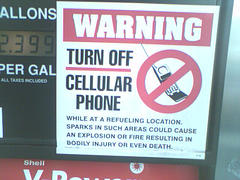"Business Service Management" -- viewing IT processes purely as a business facilitator and not an independent function -- is on the cusp of IT-analyst Gartner's latest hype-cycle for operations management tools. It is making the critical transition from the "Peak of Inflated Expectations" to the "Trough of Disillusionment," (which sounds more like something from John Bunyan's Pilgrim's Progress than typical IT-lingo). Computerworld chimes in with their own agreement that Kool-Aid style BSM is "the next big thing."
BSM is being followed over the expectations peak by the CMDB (database to track IT environments) which IT Week said yesterday is "set to double in the next year," and web services management. The CMDB is at the heart of BSM, so its catching up over the curve is essential to BSM's success and it has made quite a jump from last year's report, in which Gartner projected its productivity at ten years out. In Gartner's assessment, BSM now follows the spread of the IT Infrastructure Library, which provides the foundation of best practices necessary for BSM to work effectively.
Women's clothing manufacturer Coldwater Creek says it has saved more than $1.8 million and gained another million in profit using BSM to speed the opening of new locations, as well as another $700 thousand in licenses and software negotiations, which should help to assuage at least some of their disillusionment.
Wednesday, September 27, 2006
Tuesday, September 26, 2006
WCd (Web Site Coefficient of Drag)
Visitors to your web site want to know you're interested in their user-experience. One way to make your web site leaner and meaner is to make the PDF's more efficient. Most PDF's are made for print quality and can be made smaller and more streamlined when used on a web site, speeding up the process for the reader. Take a look at some great tips on optimizing Acrobat files here.
Monday, September 25, 2006
Coffee and IT in Detroit

IT professionals may have a tough time finding a Starbucks in the motor city, but a net 9% (12% add/3% reduce) of the CIO’s in Detroit with more than 100 employees expect to hire IT staff in Q4 according to the latest Robert Half Technology IT Hiring Index and Skills Report. This is up a net four points from Q3. Add this news to the thousand jobs being brought to the state by Google for a glimmer of hope through the impending clouds drifting from the auto industry.
Tuesday, September 19, 2006
Warner/youtube - New Realities
Speaking of youtube, yesterday's deal between the fourth-largest record company, Warner Music and Chad Hurley's 19-month old youtube should shake things up a bit for both the pros and the amateurs.
Thursday, September 14, 2006
Move Over YouTube - brightcove
Here's a new player in the webvideo space -- including b2b applications - www.brightcove.com .
Finding (and Creating) IT Talent
Interesting results in a Computerworld poll of companies on what they are doing to locate talent in a tight IT market --
Top Five:
- Create a talent pool of active and passive candidates (55%)
- Emphasize strategic longer-term workforce planning (54%)
- Improve preassessment tools of knowledge and skills (53%)
- Improve company brand as a stellar place to work (36%)
- Invest in online assessment tools for skills of internal and external candidates (23%)
More than one response was allowed, so the percentages are not exclusive, but notice the decisive favor of the top three and their benefit to the company vs. the other two with greater benefit to employees.
Top Five:
- Create a talent pool of active and passive candidates (55%)
- Emphasize strategic longer-term workforce planning (54%)
- Improve preassessment tools of knowledge and skills (53%)
- Improve company brand as a stellar place to work (36%)
- Invest in online assessment tools for skills of internal and external candidates (23%)
More than one response was allowed, so the percentages are not exclusive, but notice the decisive favor of the top three and their benefit to the company vs. the other two with greater benefit to employees.
Wednesday, September 13, 2006
i.c. stars In The News

Here's a great video clip highlighting the Chicago-based i.c. stars technology, business and leadership training program. The photo here is founder and president, Sandee Kastrul at the recent Big Bang! event held at Northern Trust.
Watch for their new landing page for prospective interns at www.howcanicstars.org or send the textmark message icstars to 41411.
Tuesday, September 12, 2006
Over The (Phone) Line
Going back to my earlier post about corporate cell phones, it appears Ms. Dunn didn't get away with eavesdropping after all.
Sunday, September 10, 2006
Success Without Compromise
How do you move to the next level? Whether it's George Ryan maintaining his office in the shadow of children burning to death in a van, or a starlet supplementing her celebrity doing "pioneering" magazine covers, or the parade of Hummers and Suburbans lined up outside the daycare center, compromise can offer to move you forward. And refusing it in the type or degree necessary can leave your career languishing in the status quo.

The value of "success" without compromise gives definition to what success is and what a successful person looks like. Encouraging success at any necessary cost leaves it looking hollow in the long run -- "men without chests" in C.S. Lewis' description. Not a politically correct observation; any number of experts and lawyers (or mayors) will be glad to draw up a plan to take things out of the realm of good-or-bad and make them simply "different." Or to offer a sentence that doesn't actually involve real jail time.
But you'll know. Even if you gain the advantage at the moment you'll know. Just a short word of encouragement to stick to your guns and make your successes real ones.

The value of "success" without compromise gives definition to what success is and what a successful person looks like. Encouraging success at any necessary cost leaves it looking hollow in the long run -- "men without chests" in C.S. Lewis' description. Not a politically correct observation; any number of experts and lawyers (or mayors) will be glad to draw up a plan to take things out of the realm of good-or-bad and make them simply "different." Or to offer a sentence that doesn't actually involve real jail time.
But you'll know. Even if you gain the advantage at the moment you'll know. Just a short word of encouragement to stick to your guns and make your successes real ones.
Friday, September 08, 2006
Titles And Actions

For your next corporate event, you're limiting your invitations to Director and above so you know you've got the right people covered, right? Steve Johnson says, "Titles are meaningless; actions are meaningful," especially when it comes to marketing.
In his most recent Pragmatic Marketing newsletter, Steve opens with "Titles really are a mess in our business." He cites Geoffrey Moore's definitions in "Crossing the Chasm" of the difference between a product manager and a product marketing manager, the sum of which is, "A PM listens to the market; a PMM talks to the market."
In the same way there are no IT problems, only business problems addressed by IT, "there are no marketing requirements; only market requirements" addressed by the marketer.
More Shocking Than Paris Hilton's DUI --
Well, actually there's a lot that's more shocking but the click-rate journalism is pandering to the masses on a slow news day. How do you get the mass-market to drive better headlines? Part of the answer is going to be in a greater tendency toward niche news marketing, along with a dogged optimism for greater selectivity in those billions of clicks.
Thursday, September 07, 2006
The CEO Blog
How is a CEO (CIO/CFO) blog different from a regular blog? Not just a sporadic comment from on high, but how is a regular open publication of original ideas different for the executive? There are certainly some distinctions in how the supply and demand work, as well as the potential costs and risks involved. The same things that make a blog good for the individual may be dangerous for the corporate icon.
A blog may not be the best venue for a CEO's stream of ideas and observations. And if it's not, gaps in the messaging can lead to lagging regular interest. Solve this by hiring out the writing and you undermine the genuineness of the message; defeating the purpose and potentially damaging the corporate image.
An executive's strength is often more aligned with persuasive verbal skills than in written substance. Is the risk of faulty logic or grammatical and other errors undermining the chief spokesman's credibility worth the value of a blog's transparency? Although it will surely hurt his following, Joe Blogger can get away with writing about "to much" this or "uncertenty" in that much more than the exec can.
And is the exec blog always considered official? If the CEO is making something other than safe, nebulous statements, it's not going to be much of a blog. But on the other hand, official positions of any substance are more appropriate in a news release, and need to bear some scrutiny.
Which raises another issue; why is the CEO writing a blog in the first place if they're doing the right things to connect with their audience with pushed-information internally (company-all e-mail) and externally (e-mail, memo, press announcement to relevant customers)?
A blog implies a pull-audience that chooses to listen and won't be held accountable for paying attention. Very powerful and real if the pull is garnered and developed. Painful if it isn't.
A blog may not be the best venue for a CEO's stream of ideas and observations. And if it's not, gaps in the messaging can lead to lagging regular interest. Solve this by hiring out the writing and you undermine the genuineness of the message; defeating the purpose and potentially damaging the corporate image.
An executive's strength is often more aligned with persuasive verbal skills than in written substance. Is the risk of faulty logic or grammatical and other errors undermining the chief spokesman's credibility worth the value of a blog's transparency? Although it will surely hurt his following, Joe Blogger can get away with writing about "to much" this or "uncertenty" in that much more than the exec can.
And is the exec blog always considered official? If the CEO is making something other than safe, nebulous statements, it's not going to be much of a blog. But on the other hand, official positions of any substance are more appropriate in a news release, and need to bear some scrutiny.
Which raises another issue; why is the CEO writing a blog in the first place if they're doing the right things to connect with their audience with pushed-information internally (company-all e-mail) and externally (e-mail, memo, press announcement to relevant customers)?
A blog implies a pull-audience that chooses to listen and won't be held accountable for paying attention. Very powerful and real if the pull is garnered and developed. Painful if it isn't.
Wednesday, September 06, 2006
Who Owns Your Cell Phone?

There's an interesting story today about corporate monitoring of cell phones (and home phones) of veteran boardmembers by the chairwoman of HP. Evidently a report about who leaked what in the days before Carly Fiorina's ousting is based on cell phone calls made by some of the board's directors. "All legal and proper," says HP. One director quit (to go work on building his yacht); another refused. If you feel like someone's looking (listening) over your shoulder, you might be right.
And, btw -- do you yell over to the guy at the next pump to get off his cell phone so he doesn't blow everyone up?
Tuesday, September 05, 2006
A Million A Month On Squidoo
Now that it's in the million-hits-a-month club, Squidoo needs help with their Director of Philanthropic Relations function. ...Should be an interesting interview process.
Freedom and Security on 9/11

Twenty years ago when I was a translator in Berlin, it was routine to take 20-30 minutes or more in line every time you drove through Checkpoint Charlie across the border to the East. It never got any better -- just depended on how popular the day was for travel. Your car might be under a good deal of scrutiny from the men in drab green as they collected your passports and paperwork, peered through the windows and rolled mirrors under the chassis, or you might be waved through without much trouble, but it was never efficient.
As we get closer to the anniversary of the 9/11 attack and have already had one potential threat for that day defused, the security will surely be stepped up. If you're heading in or out of LaGuardia, Dulles or O'Hare you may be thinking, "why don't we just skip the 11th on the calendar like some elevators skip the 13th floor?" But for all the hassle and imposition on our freedom, there's one huge difference between the process at Checkpoint Charlie and O'Hare.
The free market deals with the balance between freedom and security just like it does with MP3 players and SUV's. Apart from next week's inevitable delays, the system has smoothed out pretty well since being stepped up five years ago. If you time your travel well, don't bring check-on luggage or scissors, and move through the line without asking (out loud anyway) if lip balm is on the list of prohibited items, the whole screening process has gotten fairly reasonable in my opinion. And by the way, it seems to be working well in terms of foiling terrorist plots as well.
OK -- so the cold war is in the history books now but before you get steamed about the lines at the airport, consider that Checkpoint Charlie never got any more efficient until the day the bulldozers came through.
Friday, September 01, 2006
Making Technology Relevant

In his book about transforming companies to the next level of business Good to Great, Jim Collins talks about knowing which technology is relevant and that you can't make good use of it unless it is relevant. He says there are three qualities you need to have to make technology relevant, and which allow it to truly accelerate your momentum. It has to be:
- technology you are enthusiastic about
- technology that drives an economic process
- technology at which you can be the best in the world
These are all intertwined and interdependent, but the best in the world stands out as a sure bet. In the interregnum, it's good to have the analysts considering you a contender for the crown, as Forrester does with BMC Software here.
Subscribe to:
Posts (Atom)



